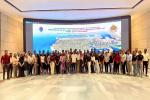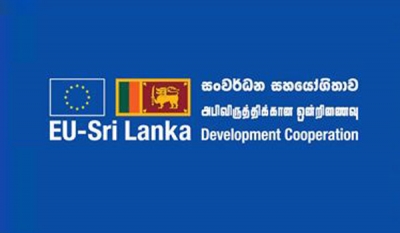The initiative is part of the European Union Support to District Development Programme (EU-SDDP), funded by the EU and implemented by 5 UN agencies and IFC.
As part of this initiative, workshops were held recently in Mannar and Vavuniya for over 60 participants, focusing on how small businesses could conduct business better and more responsibly to spur their growth.
The seminars were organized by SLID, in partnership with the Mannar District Chamber of Commerce, Industry and Agriculture and the Vavuniya District Chamber of Commerce and Industry.
The workshop included sessions on responsible business conduct, legal procedures of registering a company, and finance, accounting and tax issues faced by small businesses.
“Such comprehensive, custom-made training programs, delivered in the local language, help entrepreneurs and small business owners improve their corporate governance to operate more efficiently and mitigate risk with safeguards against mismanagement” said Lilani Perera, Chief Executive Officer of SLID.
Small businesses in emerging markets generally rely heavily on a few talented people—most often the founders, who dominate the decision-making process.
The command-control system is common, strategic and operational decisions occur informally, and there are very few written policies.
If such companies are well governed, with sound corporate governance principles in place, they will usually outperform other companies and will be able to access different forms of financing easier to help further growth.
Participants at the seminar were also introduced to the IFC Corporate Governance Assessment Tool, a customized tool to help small businesses assess their existing corporate governance practices, based on the universally accepted OECD principles.
“Improved corporate governance practices contribute to economic development and increases access to capital for small businesses,” said Graeme Harris, IFC Senior Operations Officer, Sri Lanka and Maldives.
“Increased access to capital encourages new investments, boosts economic growth, and provides employment opportunities.”
Such projects form an integral part of the financial and development assistance that is provided through the EU-SDDP with a grand total of EUR 60 million to support the Government of Sri Lanka's thrust for economic and social development in 7 conflict-affected districts covering half a million people.
The actions undertaken through this initiative are linked to three focus areas, including support to poverty reduction and provision of basic infrastructure and services for vulnerable populations, support to local economic development, and strengthening of local governance.
About Sri Lanka Institute of Directors ( SLID )
The Sri Lanka Institute of Directors (SLID) is the only body representing Directors in Sri Lanka and is widely recognized as the authoritative focal point on Boardroom Stewardship.
A diverse membership of over 700 professionals and directors from blue chips, quoted and unquoted private companies, family businesses and entrepreneurial ventures meet regularly to share best practices and participate in discussions on contemporary issues.
SLID believes that the Sri Lankan corporates, particularly the SMEs, require more awareness of the regulatory framework and a greater understanding of positive corporate behavioural values to contribute towards the economic development of the nation, and to meet this need, has intensified its efforts in taking the message of corporate governance to the provinces.
Kandy, Ratnapura, Gampaha, Matara, Hambanthota, Trincomalee, Kilinochchi, Jaffna and Batticaloa have been covered to date.
More information on SLID’s activities can be gleaned on www.slid.lk
About IFC
IFC, a member of the World Bank Group, is the largest global development institution focused exclusively on the private sector.
Working with private enterprises in about 100 countries, IFC uses its capital, expertise, and influence to help eliminate extreme poverty and boost shared prosperity.
In FY14, IFC provided more than $22 billion in financing to improve lives in developing countries and tackle the most urgent challenges of development.
For more information, visit www.ifc.org.























